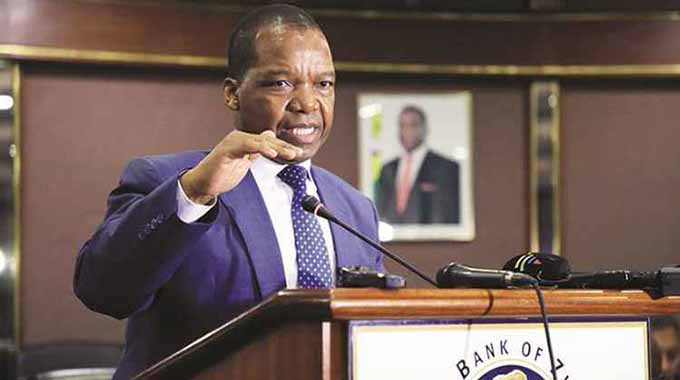EDITORIAL COMMENT : Celebrate Heroes’ Day with a difference

Zimbabwe is commemorating Heroes’ Day for the first time under unprecedented conditions.
Today will be the first time the commemorations take place without huge gatherings, without a children’s party, galas and soccer matches at the main venue in Harare and throughout the country because of the global health pandemic, Covid-19.
The long weekend that combines Heroes’ and Defence Forces holidays is annually defined by an exodus from urban areas to the countryside, for family reunions. That won’t happen this year because of the travel restrictions. The positive, however, is that for the first time the country will be spared road carnage.
The Covid-19 statistics are on an upward spike and the need to keep the pandemic at bay have forced a departure from previous celebrations.
Not only are this year’s celebrations being held under the dark cloud of Covid-19; they are taking place against the backdrop of a co-ordinated attack — orchestrated by remnants of G40 fugitives — all aimed at destabilising the country.
Heroes’ Day is an occasion Zimbabweans remember and reflect on the selfless and supreme sacrifice paid by those who lie at the National Heroes’ Acre, and those of their comrades still alive.
A hero, in the Zimbabwean context, is defined by his/her contribution to the fight against colonialism and neo-colonialism. It is also the protection and preservation of Zimbabwe’s values and interests that contribute to making one a hero.
That is why, apart from those who were at the war front, you have notables such as Guy Clutton-Brock, Senator Kantibhai Patel, and Cde Gary Magadzire buried at the National Heroes’ Acre.
Heroes’ Day is also a time to pay tribute to the freedom fighters who lie buried elsewhere in Zimbabwe and in neighbouring countries.
The remains of other freedom fighters lie buried in Mozambique, Tanzania and Zambia. Some were brought home, just as the remains of the First Chimurenga resistance fighters were due to be returned from Britain before today, were it not for the pandemic.
Other freedom fighters are buried at provincial shrines throughout the country. It is an occasion to dedicate and reaffirm the country’s commitment to the ideals and sacred values that the freedom fighters lived, fought and died for. What also sets apart this year from the previous ones is the choreographed onslaught on the country in recent weeks. The attacks are an unprecedented and unrelenting campaign.
The events of recent weeks amount to a co-ordinated final push to put Zimbabwe on the agenda of SADC, the African Union and the United Nations in that ascending order.
Aided and abetted by fugitives from the law, the enemy faced during the liberation struggle has not rested. In this they have found ready support in people who have vowed to punish Zimbabwe for the November 2017 transition that stripped them of accoutrements of power and privileges, leading to their flight to South Africa and elsewhere on the continent.
The question that begs explanation is the extent to which countries, which are bound together by history of being products of liberation movements should entertain fugitives, if their activities seek to plunge a sister state into a crisis.
The threat that “colonies do not cease to be colonies simply because they are independent” and the warning about fellow nationals who are ever ready to work with the erstwhile oppressors in undermining the country point to a strategy to destabilise the country and create conditions that justify external intervention.
All over the world, especially in all democratic dispensations, general elections are an important barometer of a people’s right to elect their preferred political leadership.
Sadly for Zimbabwe, that right is yet to be respected and the offshoot of that position has seen attempts to portray and consequently seek to plunge the country into a perpetual crisis mode. It is as if the country must be punished for not having voted in a certain preferred manner.
One of the contentious issues of the past two decades has been the response of the West to Zimbabwe’s 2000 Land Reform Programme, a key demand during prosecution of the struggle for the liberation of this country.
It is ironic, therefore, that the threats of destabilising the country follow the history conclusion of the agreement on compensating white former commercial farmers for the improvements on land the Government acquired for the land redistribution programme.
Last week, President Mnangagwa dwelt on and called for peace, arguing that economic stability and sustained economic growth would remain elusive in the absence of peace.
It is the realisation and pursuit of peace that informed the setting up of the National Peace and Reconciliation Commission (NPRC), with the mandate for ensuring a framework for lasting peace and sustainable development.
To this end, the NPRC has been conducting visits throughout the country, seeking to build consensus on how Zimbabwe can deal with its past and move forward.
Since Heroes’ Day commemorates heroes and heroines for their bravery and sacrifice in liberating this country, it is also important to spare a thought for those they left behind or those that lost their bread winners.
An example would be how they are being assisted during these harsh economic circumstances — times which are challenging even for those in full employment.
The National Heroes’ Dependants’ Assistance Fund might therefore require regular reviews of entitlements to beneficiaries because of the current economic environment to afford the surviving dependants a decent existence.
Today enjoins Zimbabweans to forever cherish the independence that the heroes and heroines, dating back to the First Chimurenga fought for and achieved on behalf of the present and future generations.
And tomorrow, the nation pays tribute to the Defence Forces, the Police, Prisons and security services for their role in maintaining peace and security, against the backdrop of changed but subtle sinister threats to the security of the country.











Comments